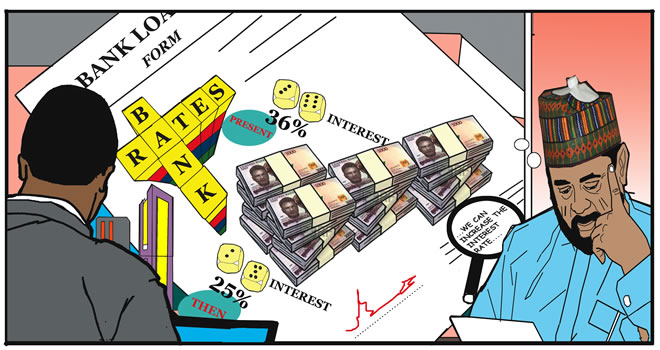It is quite common for banks to increase interest rates payable on loans but they hardly reduce the rates after giving out the loans.
Although this may be unpleasant to borrowers, it is important to know that as major lending institutions, banks play a vital role in providing individuals with loans.
At some points in life, an individual may need urgent funds to meet some personal exigencies or for business expansion. This could make the individual to resort to borrowing from banks.
Before you choose the bank to borrow from, it is advisable to compare interest rates in all the banks you have around. Banks charge different interest rates on loans, depending on a number of factors.
It is also important to know that there are some loans whose interest rates do not change.
To know if your bank has the tendency to increase the interest payable on a loan you want to take, you need to read the terms of the contract very well.
Banks always attach a written agreement to loans for the borrowers to read. The terms and conditions will state if the bank reserves some rights to review the interest rate upward or not.
It will also state the actions that the bank can take against you if you are unable to repay the loan on time.
The agreement will explain to the borrower everything that he needs to know about the repayment of the loan.
The Chief Executive Officer, Cowry Asset Management Limited, Mr. Johnson Chukwu, says there may be some general reasons for a bank to increase its interest rate on a loan.
“If the Central Bank of Nigeria increases the Monetary Policy Rate, the banks will need to access funding from the public at a higher rate and will be compelled to review the interest rate upward,” he says.
According to him, if there is a high risk in a particular sector, the banks will have to charge for that risk payment.
He explains that a general decline in liquidity in the economy or banking system will make banks to pay more to access deposits, which in turn will make it to charge more for lending.
Chukwu says there are specific industry reasons that can make banks to review interest rates upward.
“There are instances where a bank will want a particular sector to play down on its loans, it could decide to increase the interest rates on loans in that sector to discourage borrowers from keeping their money and compelling them to return such money to the bank,” he says.




